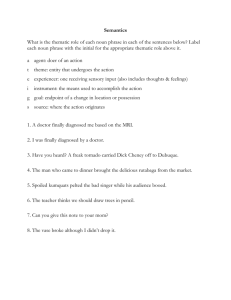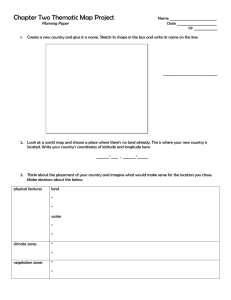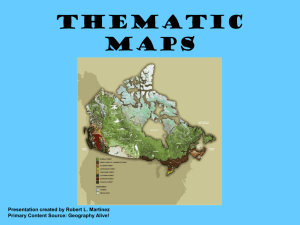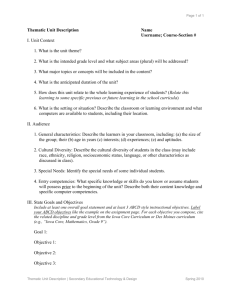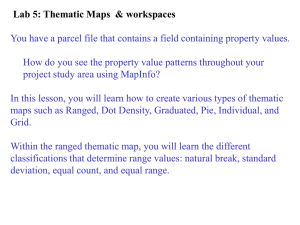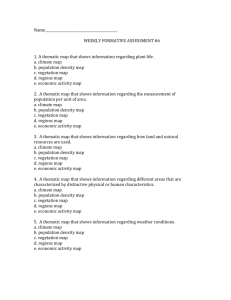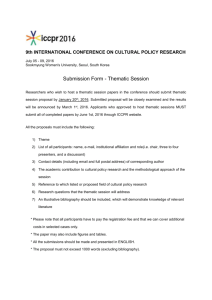Writing Thematic Statements
advertisement
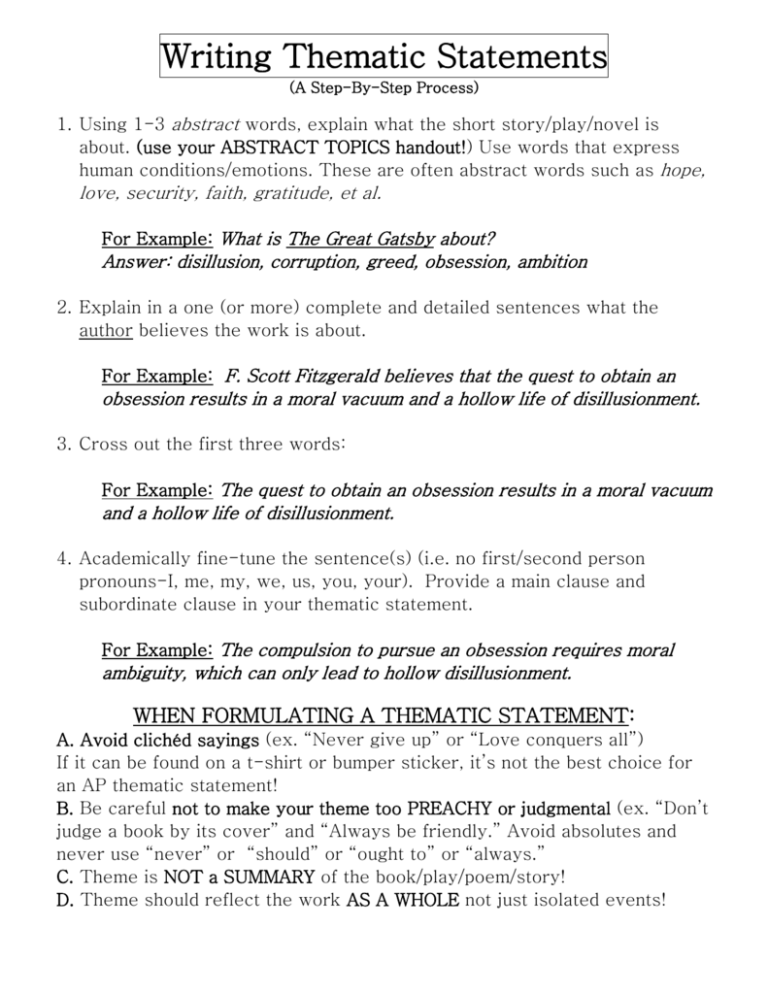
Writing Thematic Statements (A Step-By-Step Process) 1. Using 1-3 abstract words, explain what the short story/play/novel is about. (use your ABSTRACT TOPICS handout!) Use words that express human conditions/emotions. These are often abstract words such as hope, love, security, faith, gratitude, et al. For Example: What is The Great Gatsby about? Answer: disillusion, corruption, greed, obsession, ambition 2. Explain in a one (or more) complete and detailed sentences what the author believes the work is about. For Example: F. Scott Fitzgerald believes that the quest to obtain an obsession results in a moral vacuum and a hollow life of disillusionment. 3. Cross out the first three words: For Example: The quest to obtain an obsession results in a moral vacuum and a hollow life of disillusionment. 4. Academically fine-tune the sentence(s) (i.e. no first/second person pronouns-I, me, my, we, us, you, your). Provide a main clause and subordinate clause in your thematic statement. For Example: The compulsion to pursue an obsession requires moral ambiguity, which can only lead to hollow disillusionment. WHEN FORMULATING A THEMATIC STATEMENT: A. Avoid clichéd sayings (ex. “Never give up” or “Love conquers all”) If it can be found on a t-shirt or bumper sticker, it’s not the best choice for an AP thematic statement! B. Be careful not to make your theme too PREACHY or judgmental (ex. “Don’t judge a book by its cover” and “Always be friendly.” Avoid absolutes and never use “never” or “should” or “ought to” or “always.” C. Theme is NOT a SUMMARY of the book/play/poem/story! D. Theme should reflect the work AS A WHOLE not just isolated events! Name _____________________________________ Date ______________ Period _____ 1. Using 1-3 abstract words, explain what the short story “Where are You Going? Where have You Been?” is about. (use your ABSTRACT TOPICS handout!) Use words that express human conditions/emotions. These are often abstract words such as hope, love, security, faith, gratitude, et al. 1.___________________ 2. ____________________ 3. _______________________ 2. Explain in a one complete and detailed sentence what Joyce Carol Oates believes the work is about. Joyce Carol Oates believes that/the story conveys that ___________________________________________________________________________ ___________________________________________________________________________ ______________________________________________________________________ 3. Cross out the beginning words through “that”: ___________________________________________________________________________ ___________________________________________________________________________ _________________________________________________________________ 4. Academically fine-tune the sentence (i.e. no first/second person pronouns-I, me, my, we, us, you, your). Provide a main clause AND a subordinate clause in your thematic statement. ________________________________________________________________________ ________________________________________________________________________ 5. Now that you’ve derived a thematic idea from the text, you will need to support your assertion with evidence from the story itself. Provide 3 specific examples from the text on the lines below that would support your thematic statement. Ask yourself: How do I know this is the universal message of the story? 1. _____________________________________________________________________ _____________________________________________________________________ 2. _____________________________________________________________________ _____________________________________________________________________ 3. _____________________________________________________________________ _____________________________________________________________________
